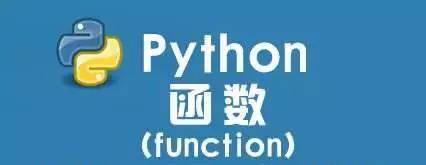Find的七种基本用法
1. 作“找到、发现”后可接双宾语;
若双宾语交换位置用介词 for引出间接宾语。如:
Please find me my key.
=Please find my key for me. 请给我找到我的钥匙。
试比较。如:
We found him a good teacher. 我们发原由网现他是位好老师 (复合宾语,=We found that he was a good teacher)。
We found him a good job.
=We found a goodjob for him).我们为他找了份好工作 (双宾语)
Can you find me a hotel?=Can you find a hotel for me? 你能给我找一家旅馆吗?
2. 表示“发现”时,其后可接各种形式的复合结构(名词的复合结构、形容词的复合结构、现在分词的复合结构、过去分词的复合结构、不定式的复合结构等等) 。如原由网:
(1) 宾语+名词作宾语补足语。如:
You’ll find it a difficult book. 你会发现它是一本难懂的书。
有时可在宾语补足语前加上to be。如:
You’ll find it to be a difficult book. 你会发现它是一本难懂的书。
I didn’t find her an easy www.58yuanyou.comwoman to work with. 我发现她不好共事。
(2) 宾语+形容词作宾语补足语。如:
He found the room empty. 他发现房间是空的。
I found the book easy. 我觉得这书读起来比较容易。
We find the story (to be) very interesting. 我们发现这个故事很有趣。
有时可在宾语补足语前加上to be。如:
We find the story (to be) very interesting. 我们发现这个故事很有趣。
(3) 宾语+副词作宾语补足语。如:
Did you find her in? 你发现她在家吗?
I went to her house but I found her out. 我到她家发现她不在家。
用作宾语补足语的副词通常只能是in, out, up, down, upstairs, downstairs等表示处所的副词小品词,而不能是其他普通副词。
(4) 宾语+不定式作宾语补足语。如:
He found the patient to be a small boy. 他发现病人是一个小男孩。
用作宾语补足语的不定式通常为to be(且通常可以省略),但当find用于被动语态时,可以用其他动词。如:
Her blood was found to contain poison. 她的血液里被发现有毒。
He was found to have helped himself to public money. 他被发现挪用了公款。
(5) 宾语+现在分词作宾语补足语。如:
I found him lying on the floor. 我发现他躺在地板上。
I found him standing at the door. 我发现他正站在门口。
(6) 宾语+过去分词作宾语补足语。如:
He found the door locked. 他发现门锁上了。
He found the city much changed. 他发现这个城市发生了巨大的变化。
(7) 宾语+介词短语作宾语补足语。如:
We found her in tears. 我们发现她在哭泣。
We found the map quite out of date. 我们发现这地图已完全过时。
I found the boy hiding behind the door. 我发现这个小男孩躲在门后。
另外还要注意“find+形式宾语it+宾语补足语”结构。如:
I find it easy to get on with her. 我发现原由网她很容易相处。
He found it easy to earn extra money. 他发现赚点外快很容易。
I found it interesting being back at school again. 我发现再次回到学校很有意思。
He found it hard to finish the work in time. 他发现要及时完成这项工作很困难。
注意:后接不定式的复合结构时,主要是 to be, 偶尔可见 to do型。另外有时也接带先行词 it 的复合结构。如:
3. 其后有时可接 that 从句。如:
I found that the book was very interesting. 我发现这本书很有趣。
They found that he was no longer working there. 他们发现他已经不在那儿工作了。
He found (that) no one could answer his question. 他发现没有人能回答他的问题。
When he arrived, he found that she had gone. 当他到达时,他发现她已经走了。
后接 that 从句时,只要句型适合且不影响原意,有时可转换成复合结构,如上面的前面两句可转换为:
I found the book very interesting.
They found him no longer working there.
但是,上面的最后两句不适合这种转换,因为从句中用了情态动词或完成时态。
4. 用于 find oneself, 主要用法:
(1) 后接宾语补足语,含有出乎意料的意味,表示(突然)发现自己处于某种状态或来到某地方。或“不知不觉或突然…”如:
He woke up and found himself in hospital. 他醒来时发现自己在医院里。
He returned to England to find himself famous. 他回到英国,发现自己竟出了名。
Suddenly I found myself face to face with the man. 突然我发现自己面对面跟这个人站在一起。
(2) 表示发现自己的真实能力、性格、愿望等。如:
Mary tried several jobs but at last found herself as a teacher. 玛丽试做了几种工作,但最后发现自己还是适合于当老师。
(3) 指某人身体方面的自我感觉。如:
How do you find yourself today? 今天你觉得身体怎样?
5.注意区别 find 与find 原由网out:前者指偶然地“发现”、或通过实验而“发现”、或通过寻找而“找到”等,而后者则指通过调查或观察询问等而“查明情况或事实真相” 。如:
We must find out the truth of the matter. 我们必须查明事实真相。
We must find out where he lives. 我们必须查明他住在什么地方。
有时find out中的out可以省略。如:
Please find (out) what time they are coming. 请了解一下他们什么时候来。
6. find是终止性动词,一般不与一段时间连用。如:
正:I found it a long time ago. 这个东西我找到很久了。
误:I (have) found it for a long time.
7. 1. 用作及物动词,主要用于下列句型:
(1) 后接名词或代词。如:
Where did you find it? 你是在什么地方找到它的?
You’d better try and find another job. 你最好设法另找一份工作。
You’ll find the answers at the back of the book. 在书后你可找到答案。
(2) 后接that-从句。如:
Now he found that he could relax a little. 现在他发现可以放松一下了。
Newton found that all masses attract each other. 牛顿发现所有物质都互相吸引。
He found that she was a cheat. =He found her to be a cheat. 他发现她是个骗子。
高考英语微信公众号Englishtec




